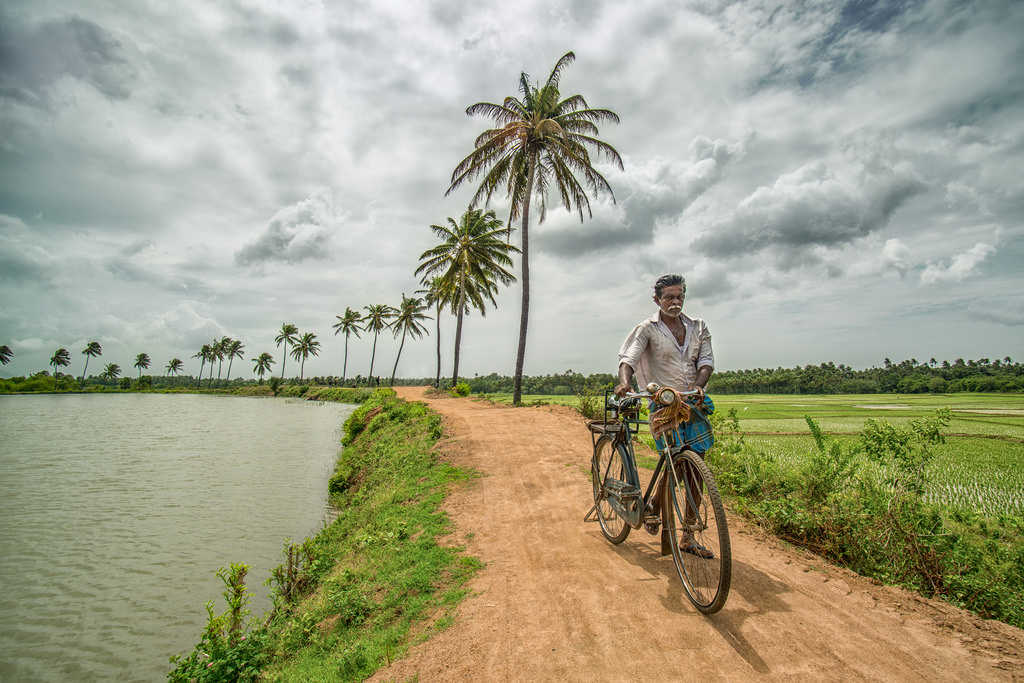So, Congress and other Opposition parties are observing Black Day all over India, except in Tamil Nadu (DMK withdrew citing Rains) to protest against Demonetisation. On the other hand, the Government is observing “Anti Black Money Day” today. Should we mourn the demise of old currency notes that caused immense problems to us or celebrate the fact that Black Money holders are taught a lesson? Was this decision so bad India’s poor suffered and Indian Economy was hit sp badly that now it possibly cannot not recover? Or did this decision put a full stop to terror-Ops and wiped out Black Money from Indian Economy? Let us stick to the ancient Indian tradition and deliberate.
Using the same old Indian tradition of using stories to impart morals, we shall read a story. A story of Raman & Krishnan, both of whom live in one obscure village on Tamil Nadu coast. Raman was a super-rich guy. Had many industries, businesses, thousands of acres of farm lands etc. In line with the economic tradition of Independent India, he paid little taxes amassing his wealth. To store his wealth safely, he constructed a farm house close to the beach where in he has stored 90% of his wealth in Gold, like all good old Tamilians. Krishnan lives in a thatched hut made of palm tree leaves right outside the compound of Raman’s villa-de-coasta. On one fateful day, the Sea God paid a visit to both of their houses levelling their dwellings to the ground. When the sea retreated, Krishnan collected few palm leaves and fixed a new hut and went on to live his life as it nothing happened. Raman, on the other hand did not sleep – straight for a week. He kept thinking about and crying over the lost wealth and slipped into from depression, both economic and psychic. Of course, his family stood with him and his businesses were still flourishing. Still, every year he goes to the beach mourning. He looks at Krishnan who was merrily singing in the full moon. He never understood why the hell Krishnan, who lost everything was not mourning but celebrating his life. Meanwhile, Krishnan was thanking god for giving him strength to rebuild his hut and continue living like earlier days and for making him realise the futility of amassing wealth.
In short, this is the story of the after effects of Demonetisation. Steve Forbes, Editor-in-Chief, who represents the wealthy of the world called demonetisation “Sickening and Immoral”. Manmohan Singh, who considers himself the architect of Indian Economic Reforms called it “Organised Loot and Legalised Plunder”. People like Rahul Gandhi, who were forced to stand in a queue outside ATM for the first time in their lives knew the inconvenience demonetisation caused. Seriously, demonetisation caused huge problems to the average Indian, especially to the poor. It affected migrant labours the most. Within months, Forbes carried out another article on how India could survive demonetisation.
The truth lies somewhere between the criticism demonetisation received and the claims government made. Average Indian suffered from demonetisation. But he suffers from irregular monsoons, regular droughts, corruption by the government officers, seasonal outbreaks of Dengue, Chicken-Gunya, high taxes, road accidents, snake bites and adulterated food including milk and so on – the list is endless. For that average Indian, demonetisation became one of many problems he had to deal with. And, the good thing is that it is not recurring in nature like most of his other problems and it lasted for a fixed tenure. They forgot the inconvenience it caused and continued their regular struggle i.e., leading their regular lives.
These average Indians don’t bother whether GDP is increasing or decreasing. They don’t even bother about currency exchange rate. Only because, they lived waiting six months for a Bajaj scooter or even a gas connection. They lived waiting for hours for a train in which they may not get a seat to sit on. They lived in the villages waiting for the teacher who was supposed to work in a one room school. They waited for generations for the doctors who never came to their villages, except during camps.
Only those who never had to stand in a queue and wait for anything and were not insulted by government officers are rattled by the demonetisation. It forced them to think of innovative ways to keep their ill-gotten wealth. And, of course, they succeeded in keeping their money and this was confirmed when RBI told 99% of currency returned to the banking system.
Though not as much the government claims but demonetisation has resulted in some benefits. Of course, it did not stop generation of black money. The corrupt started taking bribes in new currency. They may even demanding Gold or Diamonds in future to keep their wealth immune from government decisions. But, it brought back money that was in parallel economy into main stream.
Forced the banks to reduce lending rates, which the RBI could not do. More than anything, demonetisation made people realise the futility of holding their wealth in cash. It just nudged many to start paying taxes. Like it was said in the later article in Forbes’s itself summed up as ‘demonetization has been a strong signalling move towards a cashless society in a Zizekian move: create a crisis to induce action.’” Those who are familiar with corporate lingo may be aware of ‘disruption management’, which is analogous.
So, for average Indians like Krishnan, Demonetisation was an incident that happened a year ago. But, for people like Raman, it was an accident in which he lost the thing which he loved most – his wealth. So, folks, Chidambaram, Rahul Gandhi etc., continue to mourn along with many of their ilk. For the rest of us, we have to get busy with our daily routine ignoring whether it is a Black-Day or a Anti-Black-Money-Day. We only pray Narendra Modi will not make another speech tonight.
